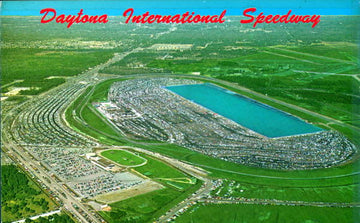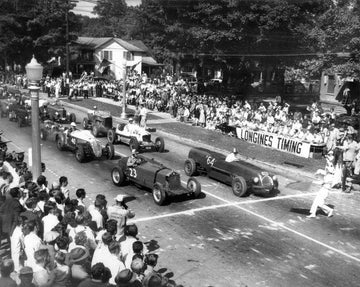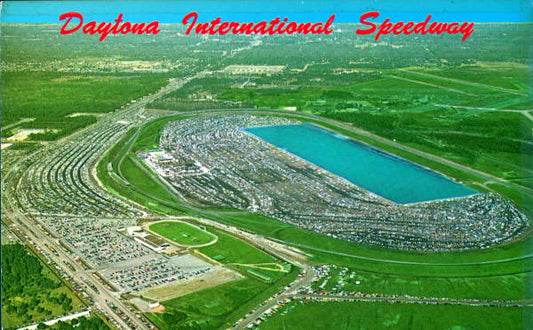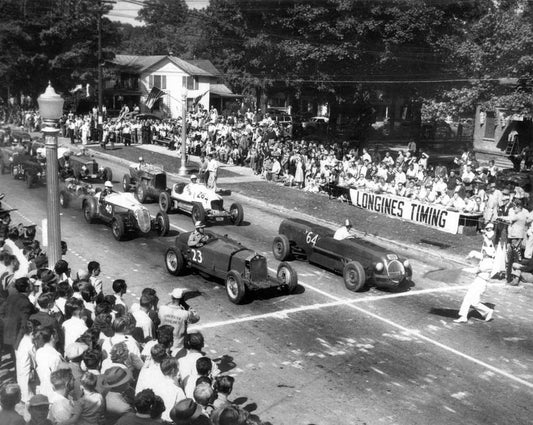Economic Implications of Hosting a NASCAR Event

Known for its high-speed races and passionate fan base, NASCAR events attract millions of viewers both in person and through television broadcasts. However, hosting a NASCAR event goes beyond the excitement of the race itself. It has significant economic implications for the host city and region. In this blog post, we will explore the various economic benefits and challenges associated with hosting a NASCAR event.
The Popularity of NASCAR
NASCAR has a devoted fan base and consistently draws in high viewership numbers. With millions of fans across the United States, hosting a NASCAR event can bring substantial economic benefits to a host city. These fans travel from near and far to attend races, contributing to the local economy through their spending on hotels, restaurants, and other amenities. The influx of visitors can also significantly impact tourism in the region, attracting people who may not have otherwise considered visiting.
Sponsorship and advertising opportunities are also a significant aspect of NASCAR's popularity. Companies have the opportunity to sponsor drivers, teams, or even entire races, allowing them to reach a large and diverse audience. The exposure gained through NASCAR events can lead to increased brand recognition and ultimately drive sales. Additionally, NASCAR fans are known for their loyalty to sponsors, making it a valuable advertising platform for companies.
Economic Impact of Hosting a NASCAR Event
Hosting a NASCAR event can have a direct and positive impact on the local economy. Attendees of NASCAR races spend money on tickets, accommodations, food, merchandise, and other goods and services, injecting money into the local economy. This spending helps support local businesses and can lead to an increase in job creation and employment opportunities. The influx of visitors also boosts sales for local businesses, such as restaurants, hotels, and retail stores.
Furthermore, hosting a NASCAR event generates tax revenues for the host city and region. The taxes collected from ticket sales, hotel bookings, and other related activities contribute to the local government's revenue stream. These funds can be used to invest in infrastructure, public services, and community development projects, benefiting the entire region.
Infrastructure Costs and Challenges
While hosting a NASCAR event can bring economic benefits, it also comes with its fair share of costs and challenges. One of the major challenges is the investment in infrastructure required to accommodate the event. The host city needs to have suitable racetracks, parking facilities, and other amenities to ensure a smooth and successful event. These infrastructure costs can be substantial and may require collaboration between the local government and private entities.
Additionally, hosting a NASCAR event can have an impact on local traffic and transportation. The influx of visitors to the area can lead to congestion and increased demand for transportation services. The host city needs to plan and manage transportation logistics effectively to minimize disruptions and ensure the smooth flow of traffic.
Another challenge is meeting safety and security standards. NASCAR events attract large crowds, and ensuring the safety of attendees is of utmost importance. The host city needs to invest in security measures, including personnel, equipment, and emergency response systems, to handle any potential issues that may arise during the event.
Sponsorship and Advertising in NASCAR
Corporate sponsorships play a crucial role in generating revenue for NASCAR events. Companies have the opportunity to sponsor drivers, teams, or even entire races, providing financial support that helps sustain the sport. These sponsorships not only benefit NASCAR but also provide companies with valuable exposure and marketing opportunities. By associating their brand with a popular and widely-watched sport like NASCAR, companies can reach a large and diverse audience, increasing brand awareness and potentially driving sales.
In addition to corporate sponsorships, advertising opportunities within NASCAR events are abundant. Companies can advertise their products or services through various channels, including signage at the racetrack, commercials during television broadcasts, and digital marketing campaigns. These advertising opportunities allow companies to reach a captive audience of passionate fans who are highly engaged with the sport. The impact of advertising in NASCAR events can extend beyond the race itself, as fans often follow their favorite drivers and teams throughout the season, providing continuous exposure for sponsors and advertisers.
Ticket Sales and Revenue Distribution
Ticket sales play a significant role in the economic success of a NASCAR event. The revenue generated from ticket sales contributes to the overall financial viability of the event, helping cover the costs associated with hosting the race. Factors such as the location of the race, the popularity of the drivers participating, and the overall demand for tickets can influence ticket prices.
The revenue generated from ticket sales is distributed among various stakeholders, including NASCAR, the teams, and the host city. NASCAR receives a portion of the revenue to support the organization and its operations. The teams participating in the race also receive a share of the revenue, helping them sustain their operations and invest in their race cars and equipment. Additionally, the host city receives a portion of the revenue, which can be used to offset the costs of hosting the event and support local community initiatives.
Other Related Topics
Beyond the economic impact of hosting a NASCAR event, there are several other related topics worth exploring. One such topic is the economic impact of other sporting events. Understanding the economic implications of hosting different sports can provide valuable insights into the potential benefits and challenges involved.
Technological advancements also play a significant role in NASCAR's economics. The sport has embraced various technological innovations, from improved race car designs to advanced data analytics. These advancements not only enhance the overall racing experience but also have economic implications for teams, sponsors, and the industry as a whole.
Environmental and sustainability concerns are also important considerations when hosting a NASCAR event. The sport has made efforts to reduce its environmental impact by implementing sustainability initiatives, such as using renewable energy sources and promoting recycling. Understanding the environmental implications of hosting a NASCAR event is essential for ensuring a balance between economic benefits and environmental responsibility.
Additional Insights
Hosting a NASCAR event goes beyond the direct economic impact on racing teams and the host city. The event can create job opportunities beyond the teams themselves, such as event staff, security personnel, and hospitality workers. These temporary employment opportunities can provide a boost to the local economy, but it's important to consider the long-term economic impact beyond the duration of the event.
The impact on local businesses and tourism extends beyond the event itself. NASCAR races often attract visitors who may choose to explore the area before or after the race, contributing to the local economy beyond the immediate event. The exposure gained through hosting a NASCAR event can also create a lasting impression on tourists, potentially leading to repeat visits and continued economic benefits.
Conclusion
Hosting a NASCAR event has significant economic implications for the host city and region. The popularity of NASCAR, the direct spending by attendees, job creation, increase in local business sales, and tax revenues all contribute to the economic benefits. However, hosting a NASCAR event also comes with challenges, such as infrastructure costs, traffic management, and meeting safety and security standards.
Sponsorship and advertising opportunities within NASCAR provide companies with valuable exposure and marketing opportunities. Ticket sales and revenue distribution among NASCAR, teams, and the host city play a crucial role in the economic success of the event.
Understanding the economic implications of hosting a NASCAR event involves considering other related topics, such as the economic impact of other sporting events, technological advancements, and environmental concerns. It is important to balance economic benefits with potential challenges and consider the long-term economic impact beyond the duration of the event.





